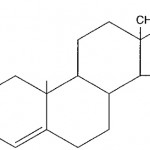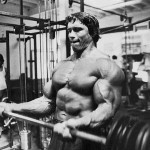I’m going to begin this article by pointing out the fact that most people do not understand the Mind Muscle Connection, and that I see this fact confirmed every time I step into the gym. Perhaps I’m generalizing, but this doesn’t really matter. What matters is that without instituting this basic concept into your workouts, you will not be able to enhance training in a way that allows you to take your workouts to the next level. This is quite a statement, but once you realize it yourself by hopefully putting into practice what you read about here next time you’re in the gym, you’ll see why I’m being so absolute. For some, the Mind Muscle Connection concept comes naturally, and that’s great. However, for a majority of people it does not, and until someone points it out, they don’t know what they’re missing out on. They do not enhance training in the gym so that it puts them in the position to make the most optimal gains.
To begin, I see a great deal of people in the gym performing an exercise by simply “moving the weight”, in other words, as long as the movement is executed all is well. Sure, this won’t hurt as it’s better than nothing, you’ll see results when compared to not doing anything at all. The problem is, those results will not be comparable to what you could be getting. I don’t care if you’re already getting great results, if you’re not using the Mind Muscle Connection I guarantee if you do your results will get even better. I get it, you’re reading this thinking I’m about to whoop out some secret training guide and ask for some change so you can obtain it and be told you’re in on a hidden goldmine. Well, that’s not the case, but…I’m 100% behind this concept and the need to understand it because it simply is the most optimal way to train. Now that we’ve all been exposed to my love for this, let’s get to the good stuff.
What is your #1 objective when you hit the gym to lift? What constitutes a good workout? You should have only one answer, and that’s that you’ve taxed the muscles you’ve worked out enough for them to have to repair and grow stronger. This is known as muscle fatigue, and your goal is to reach it every single time you’re in the gym. They muscles can’t reach their limit if you don’t hit them well enough, right? Okay, so how do we do this? We do the exercises that target that muscle and we make sure we go heavy and reach failure before we move on from one to the other.
That is the attitude most have when they hit the gym, and that’s rightfully so. The problem starts when we actually come to perform each exercise. We move the weight “just to do” the exercise, because that’s what will make us “grow muscles”. We feel the exercise, we struggle a bit, but in the end we get the rep and we’re satisfied. ….great? Not really. To enhance training in the gym and get the best results, the Mind Muscle Connection is clutch. Here’s how it works:
When you do the above, you are indeed taxing your muscles. It’s just a natural reaction based off of the fact you’re doing the exercise and it requires that particular muscle to be successfully performed. However, you have to take in the fact that by simply doing the movement, several factors impede your goal of taxing that particular muscle optimally. First (1), by just focusing on performing the rep, you’re allowing any muscle that is involved to be the front runner in doing most of the work (not necessarily the one you want). Second (2), by just focusing on performing the rep, your goal muscle group (the one you’re working out) is not getting taxed as much as it can from that particular weight you’re using. Third (3rd), by just focusing on performing the rep, you are further fueling your body towards developing asymmetrically (possibly impeding muscle symmetry as you grow bigger). Now all of these are very closely related, but there are key differences between them that I’ll show you with an example.
Ex. Bench press – you use it to workout your chest. However, both your shoulders and triceps are key muscle groups that support the performance of the rep. (1) You could be pushing up the weight by letting either your shoulders or triceps (or, both) do most of the work while your chest switches to being only a supporting muscle group. (2) Your chest might get hit, but so will both of these, not necessarily in the optimal way because the other two can take away from how much your chest gets taxed. (3) By constantly allowing, for example, your shoulders to lift a large portion of the weight, and then working out your shoulders hard, while having your chest under-perform when it’s supposed to be the primary mover, certain muscle groups (like shoulders) will grow at a different pace than others (like chest). No good, right?
The Mind Muscle Connection fixes this, that’s why it’s there to enhance training in the gym. As your training improves and you incorporate it into your workouts, your results will improve as well. This is guaranteed.
The mind is an amazing and complex thing, and you need to use it in a specific way during each exercise. When performing your set, focus on form, but most importantly, focus on your targeted muscle group and with your mind push the weight with that muscle group, and that muscle group only. It might take some work, but it’s really quite easy even though it might sound outlandish on paper. For example, if I’m working out my chest, I’m going to perform each rep with my focus ONLY on my chest, and make sure that I literally control my chest with my mind and make it press that weight up as if all other supporting muscle groups are not even in existence. Not only will this make your form better overall, but using your mind to help push that weight up with the targeted muscle group is going to make sure that you tax that muscle group to its limit each and every time you work out. I’d say that goes a long way from simply attempting to “just do it” when it comes to doing your set (and all those setbacks that brings, as we pointed out further above).
This is not exactly revolutionary, but it’s absolutely essential if you want the most out of your workouts. Once you put this into action, I guarantee your workouts will be twice as good, and twice as effective. It will change the way you work out, completely. A very small adjustment, with a very big reward.
You should also keep in mind that if you drop a bit in the weight you do for an exercise it’s not a setback, in fact, it’ll confirm you’re doing it right. Think about it, using the bench press example, if you are able to use your shoulders and triceps along with your chest, you’re going to be able to do more weight than if your chest is isolated and pushing the weight alone. Of course, let’s be realistic. You’re not completely taking out those two groups from the lift, that’s not physically possible. However, you ARE minimizing their involvement. That’s the key concept to understand, that is how you enhance training with the Mind Muscle Connection.
Next time you’re in the gym, try it out. During your warm ups, practice it, and put it to use when you’re going for your heavy sets. Remember, it’s not the weight you do, it’s how you do it. If you achieve muscle fatigue that’s all that matters. Leave your ego at the door, put this method to use, and change the way you work out. Of course, if you can lift the same weight while doing this, more power to you! The point is, and I’m going to use myself as an example here, by using the Mind Muscle Connection I can make any of the three muscles (shoulders/tris/chest) the primary mover in the bench press depending on my liking. What’s key here is the fact you can use a particular exercise to sculpt a particular muscle group, not randomly throw weights around thinking the weight you’re doing is all that matters. It’s all about connecting with that targeted muscle, and pushing that weight with your isolated/targeted muscle. I’m not about to use the bench to focus on my triceps or shoulders, but for explanation’s sake it’s possible.
Now, go out and push some weight the right way. Good Luck.
Incoming search terms:
- mind muscle connection chest








26 Comments »